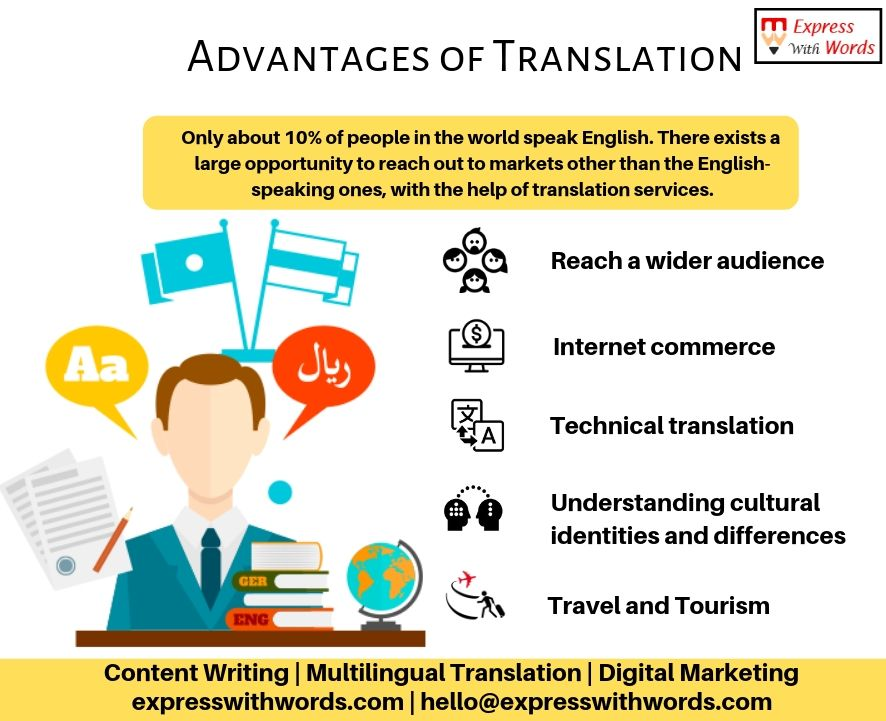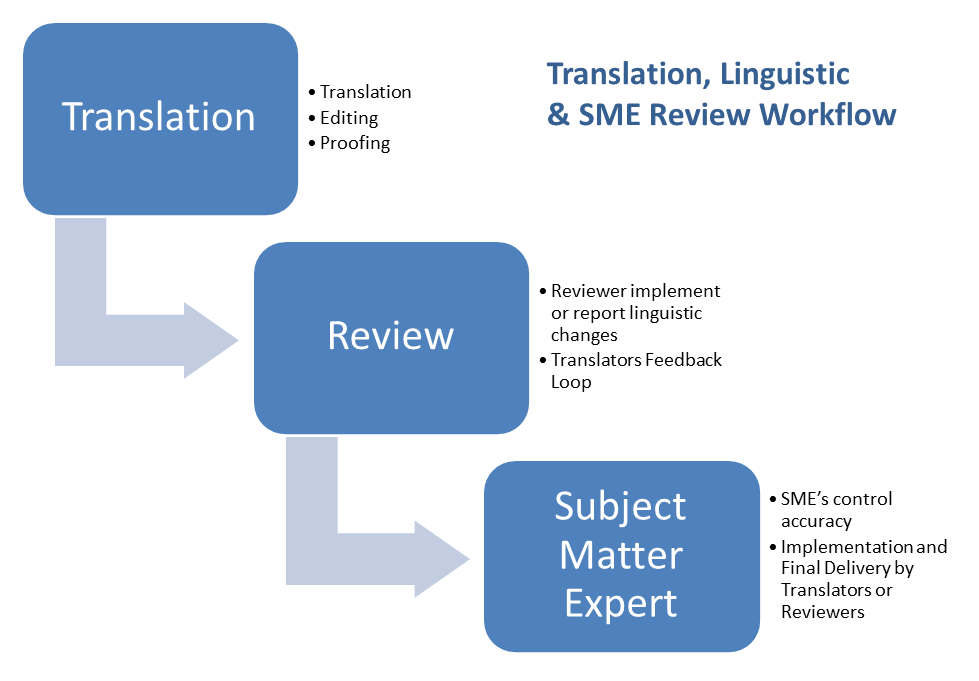The Significance of Subject Matter Experts in Translation Services

Translation services are about more than just trading words. Several vital elements must be considered, and you need the services of an expert translator to execute high-quality translation jobs. Also, a translator expert must have many qualifications, including a high-level fluency in the source and target language. It is no wonder that there is a perpetual demand for expert translation services, which can be done online from remote locations.
While translation is no rocket science, when subject matter expertise is involved in the technical translation of documents meant for target audiences, a regular translator is ill-equipped to handle the job. You must understand the subject to translate related content, even with the best language skills. Translating highly technical scientific papers calls for a subject matter expert with in-depth knowledge of the target language and localization.

Agencies providing expert language translation services employ people with an in-depth cultural understanding of several languages, specifically in the target and source languages. Besides, expertise in translation demands subject matter expertise to ensure accuracy.
What is Subject Matter Expertise in Translation Services?
Regarding translation, subject matter expertise refers to the translator’s knowledge of the subject matter being translated. Suppose a medical subject-related document needs to be translated from English to German. In that case, the translator must understand the medical subject and be proficient in German and English. If the subject is regarding a specific branch of medicine, say cardiology, it takes a cardiologist with sufficient language skills to translate the text without any errors.

Again, subject matter expertise comprises three critical types: experiential, academic, and performance-related. An academic translator will be highly qualified in the relevant subject and have years of subject matter experience. They must also possess an excellent linguistic capacity to translate related documents. They may have already published several academic papers on the subject and be masters in the target and source languages.
The expert translator will have a high level of experiential knowledge in the specific field, first-hand experience, and an understanding of the subject matter. Most translators have years of experience and may be retired professors or research fellows, making them the best people to work with providers of expert translation services.
A performance-based translator must be well-versed in the terminology, regulations, procedure, and practices followed in the related subject in which they are expert translators. While experts with academic or experiential knowledge may be masters in the topic, they cannot match the skills of performance-based translators, who do this sort of work to spread the information they possess to an audience worldwide while earning on the side.

The Benefits of Using Subject Matter Expertise in Translation Services
1. Knowledge
When localized content needs to be translated with exceptional quality, it is best to seek the services of a subject matter expert. Moreover, a subject matter expert will have superior technical knowledge and be an expert in the target and source languages.
2. Terminology
When translating highly technical content, a translator cannot afford to use standard terms in the place of highly specialized language; it becomes unprofessional, and the message cannot be delivered with the intended intent.
Using a subject matter expert ensures that the nomenclature related to the subject is adhered to, especially with specific signs, symbols, and abbreviations that have a specific meaning. The same signs and symbols may have a different meaning in another field of study, and it is easy for an inexperienced person to commit costly mistakes with severe consequences. It is better to assign such sensitive tasks to a subject matter expert who is also an expert translator.
3. Keeping the essence
Procedures often involve using lexemes, which are minimal units and cannot be translated word-for-word. However, a subject matter expert will accurately translate such words into the target language without changing the essence. In scenarios, a single word can be explained as a long-tail phrase, a sentence, or a short paragraph, which would depend on the target language, and how the content needs to be localized.
4. Knowing the audience
Experts often explain a procedure in a different language with a deep understanding of the meaning of the word, why it is being used in a specific instance, and whether the message is adequately conveyed. Unless the expert translator has the same level of knowledge as the targeted audience, it is challenging to understand if the document matches the intended requirements.
5. Varied subjects require subject matter expertise
It is not just medical or legal content that needs an expert translator to convey the exact meaning. Even business contracts that need to be drawn up in a foreign language must be translated by a translator expert to ensure that the essential elements of commerce specific to the country and its language are defined correctly.
6. The importance of subject versatility
Accurate translation from the source to the target language is about more than just transcribing words and phrases. Even mining, construction, education, pharmaceuticals, and IT industries require such specialized services.
With social and cultural situations constantly changing in a fast-paced world, information is also witnessing marked changes. Regular translators may need to be more versatile to handle the challenges associated with subject matter expertise, and it is better to allow an expert translator to manage it as they are also subject matter experts.
In the End
Subject matter expertise in translation ensures consistently high quality and accuracy. With technical papers, the accuracy and precision required are much higher. And such tasks can only be handled by qualified and experienced subject matter experts.
FAQs
Several technical documents require subject matter experts to translate them accurately. Unless experts with crucial knowledge translate the content, critical concepts are likely to be misinterpreted, even if the literal translation is correct. When technical content is translated with mistakes, the consequences can be disastrous. Hence, it is better to delegate such tasks to an expert translator who will do justice to the job.
As with other specialized professions, translation is done by experts representing internationally recognized translation agencies. Such agencies have highly qualified translator experts in multiple languages working with them. Most expert translation services are available online today, and a Google search produces several results showing experts in the field.
Subject matter expertise in translation refers to the translator’s in-depth knowledge of the subject of the content they translate. For instance, to translate a legal document, you need a person with legal knowledge and expertise in both languages (for translating from one language to another) to execute the job without errors.
To become an expert translator, you must first become highly proficient in your native language. It is equally important to become well-versed in a second and third language to translate accurately between them. Apart from traveling widely, you must listen to what your clients say and follow their instructions correctly. You must stay updated with the latest technology, which can help you become an expert in the field.
Latest Blogs
Explore how Google’s 2025 AI search updates triggered ranking chaos. Learn actionable strategies to adapt your SEO for AI Overviews, zero-click searches, and SERP volatility. Stay ahead now.
Learn how to rank on AI search engines like ChatGPT, Perplexity, and Gemini by optimizing your content for authority, structure, and relevance. Stay ahead in AI-driven search with this strategic guide.
Explore the best healthcare SEO services for your medical practice. Improve online visibility and effectively reach more patients in need of your services.
Get your hands on the latest news!
Similar Posts

Translation
5 mins read
All You Need to Know About Language Translation and Terminology Management

Translation
5 mins read
6 Reasons to Translate Content into German

Translation
5 mins read